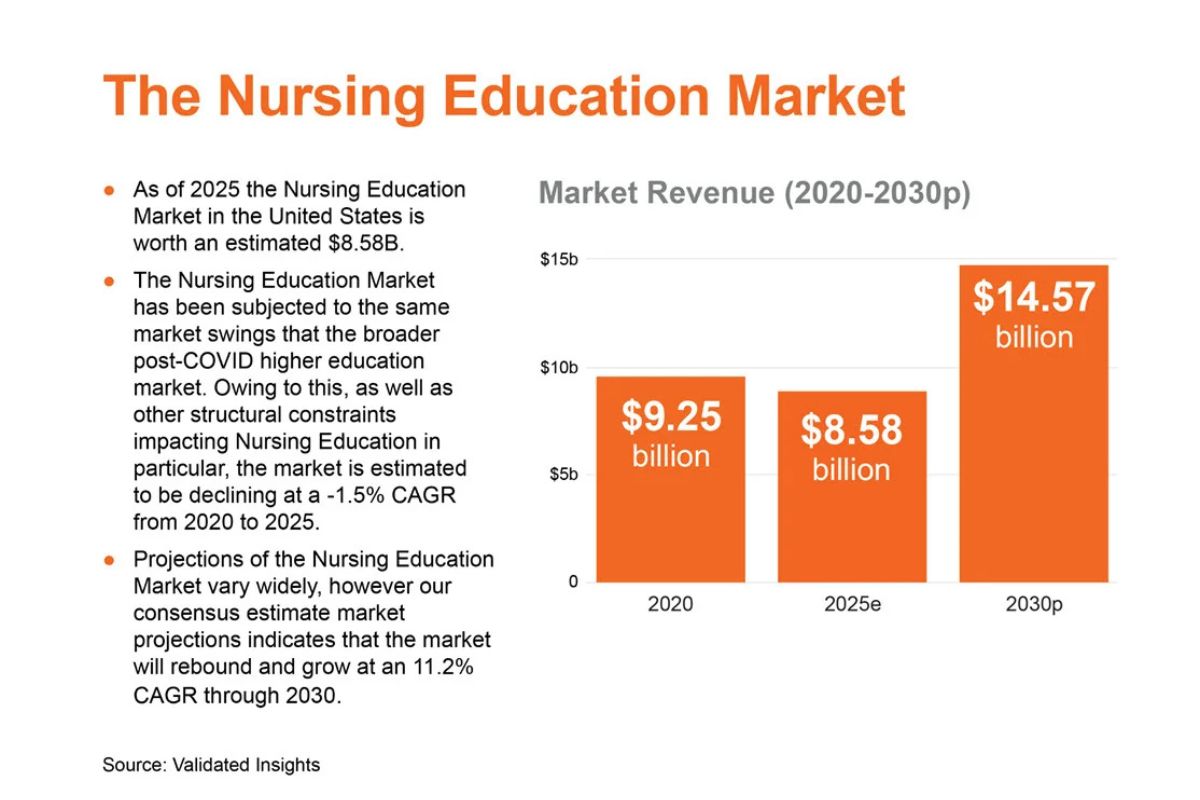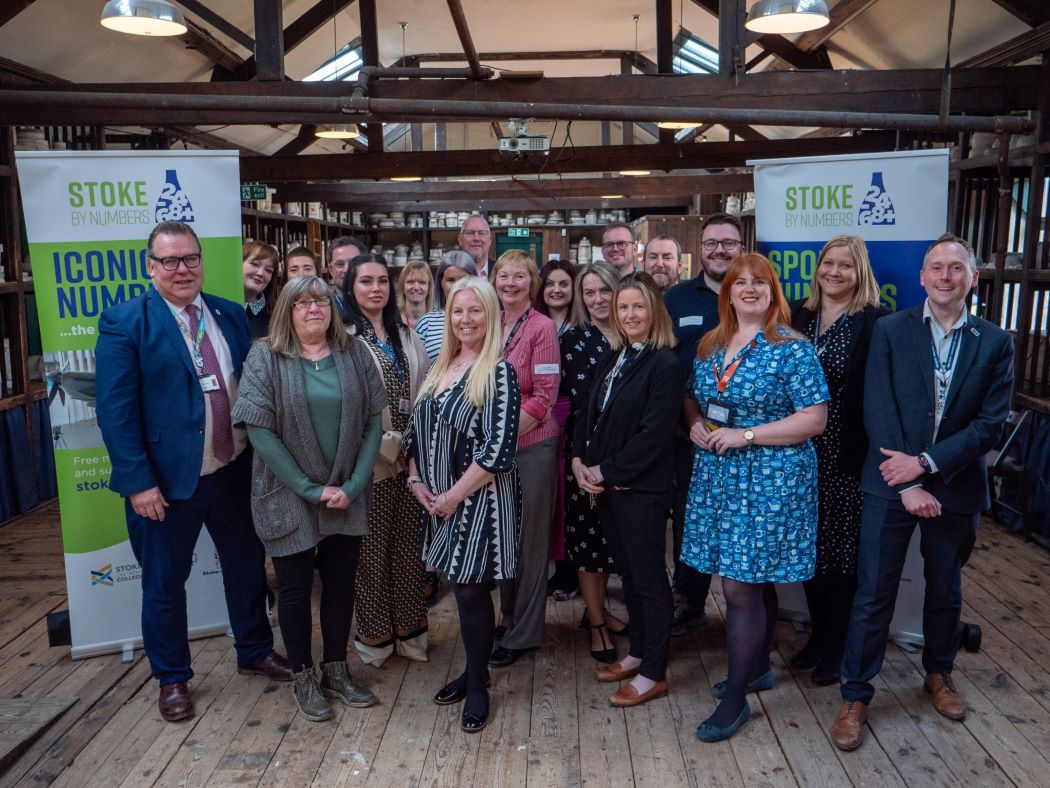Skills for Jobs White Paper is launched – Sector Response

Gavin Williamson launches the #SkillsforJobs #FEWhitePaper – New College Business Centres, employers central to designing technical courses and the launch of a new recruitment campaign for FE teachers
The much anticipated Skills for Jobs FE White Paper has been launched today (21 Jan 2021).
Skills for Jobs identifies five key areas
for an FE system that meets the country’s skills needs:
- Putting employers at the heart of post-16 skills
- Providing the advanced technical and higher technical skills the nation needs
- A Flexible Lifetime Skills Guarantee
- Responsive providers, supported by more effective accountability and funding
- Supporting outstanding teaching
Highlights of the new measures are:
- Business groups, including Chambers of Commerce, working alongside colleges to develop tailored skills plans to meet local training needs; supported by a £65 million Strategic Development Fund to put the plans into action and establish new College Business Centres to drive innovation and enhanced collaboration with employers.
- Giving employers a central role in designing almost all technical courses by 2030, to ensure that the education and training people receive is directly linked to the skills needed for real jobs.
- Boosting the quality and uptake of Higher Technical Qualifications – that provide the skills that many employers say they need and that can lead to higher wages – by introducing newly approved qualifications from September 2022 supported by a government-backed brand and quality mark.
- Changing the law so that from 2025 people can access flexible student finance so they can train and retrain throughout their lives, supported by funding in 21/22 to test ways to boost access to more modular and flexible learning.
- Launching a nationwide recruitment campaign to get more talented individuals to teach in further education and investing in high quality professional development including a new Workforce Industry Exchange Programme.
- Overhauling the funding and accountability rules, so funding is better targeted at supporting high quality education and training that meets the needs of employers; and introducing new powers to intervene when colleges are failing to deliver good outcomes for the communities they serve.
The Strategic Development Fund and new College Business Centres
The Strategic Development Fund will invite proposals for College Business Centres. Located within existing colleges, these new Centres will support growth and innovation in key sectors of the local and national economy. They will focus on supporting local businesses to increase their levels of innovation and productivity by better meeting and driving demand for technical skills; by harnessing business intelligence to improve education provision; by supporting employers to understand how investment in skills, new technology and innovative practices can drive increased productivity; and by nurturing entrepreneurial talent.
Employers will be at the heart of the system, helping to develop tailored plans that will meet local skills needs and co-designing high quality technical education
Reforms will enshrine the flagship Lifetime Skills Guarantee so everyone can get the skills they need, when they need them, and secure jobs with higher wages that support the economy
The landmark reforms that will transform post-16 education and training, boost skills and get more people into work, have been published today (21 January) by Education Secretary Gavin Williamson.
The government’s Skills for Jobs White Paper enshrines the Prime Minister’s new Lifetime Skills Guarantee, setting out a blueprint for a post-16 education system that will ensure everyone, no matter where they live or their background, can gain the skills they need to progress in work at any stage of their lives.
The Lifetime Skills Guarantee which was launched by Boris Johnson at Exeter College in September 2020, will offer tens of thousands of adults the opportunity to retrain in later life, helping them to gain in-demand skills and open up further job opportunities. This includes the chance for adults without a full level 3 qualification (A-level equivalent) to gain one from April 2021 for free in a range of sectors including engineering, health and accountancy.
Skills Bootcamps and Lifelong Loans
Meanwhile, Skills Bootcamps – free, flexible courses of just 12-16 weeks – are giving adults the opportunity to build up sector-specific skills and fast-track to an interview with a local employer. A Lifelong Loan Entitlement will also make it easier for adults and young people to study more flexibly, which can be used over their lifetime and for modules of a course.
End to the illusion that a degree is the only route to success and a good job
The measures announced today will put an end to the illusion that a degree is the only route to success and a good job, and that further and technical education is the second-class option. Instead, they will supercharge further and technical education, realigning the whole system around the needs of employers, so that people are trained for the skills gaps that exist now, and in the future, in sectors the economy needs, including construction, digital, clean energy and manufacturing.
New Build Back Better Business Council
The drive to place employers at the heart of the skills system comes as the Prime Minister launches a new Build Back Better Business Council. The new group will see business leaders work directly with government to fuel the Covid-19 economic recovery.

Prime Minister Boris Johnson said:
“Our Lifetime Skills Guarantee means that everyone will be given the chance to get the skills they need, right from the very start of their career.
‘In the years ahead, the reforms we have announced today will deliver high quality technical education across the country – and help people retrain and secure better paid jobs.
‘That way when we have beaten Covid-19 we can put rocket boosters under our recovery and Build Back Better.’

Education Secretary Gavin Williamson said:
“Our reforms to post-16 education will focus on the skills people and business need for our economy to grow. As we recover from the pandemic, our Lifetime Skills Guarantee will ensure everyone has the confidence and opportunity to gain the skills they need to progress at any stage of their lives.
“These reforms are at the heart of our plans to build back better, ensuring all technical education and training is based on what employers want and need, whilst providing individuals with the training they need to get a well-paid and secure job, no matter where they live, and in the sectors that are critical to our future economic success.”

Chair of the Education Select Committee, Robert Halfon MP said:
“The proposals from the Prime Minister and Department for Education mark a sea-change in Government thinking on skills.
“These plans will help address our skills deficit, by boosting the accessibility of technical qualifications and training, alongside the Lifetime Skills Guarantee.
“It meets the needs of businesses in creating an employed-led system, working with FE, to design qualifications and ensure funding follows employer requirements. It is hugely welcome that new funding will be made available in areas where colleges work with employers to transform their local skills offering.
“It will also give those from disadvantaged backgrounds the chance to climb the skills ladder of opportunity, through flexible learning and training, as well as easier access to finance and careers advice.
“Build back better, clearly means building back a skills nation. I am really excited by these plans and look forward to discussing them further in our Education Select Committee.”

Jennifer Coupland, chief executive of the Institute for Apprenticeships and Technical Education, said:
“We look forward to working with the government to implement this positive vision for a substantial expansion of the employer-led system across technical education.
“Huge progress has already been made in improving quality of skills training thanks to the thousands of employers who work with the Institute. We will keep working to develop a system that supports everyone to gain the skills they need for successful careers. Technical education has a key role to play in getting the economy back on its feet post pandemic.”
Sector Response to the Skills for Jobs White Paper

David Hughes, Chief Executive of Association of Colleges, said:
“This is an ambitious package of measures which can deliver a significant shift in how we support the lifelong education and skills needs of more than half the population and ensure that employers have the skilled people they need. With funding over the coming years to match the welcome policy shifts, this should rebalance the education and skills system to make it work for everyone.
“I’m delighted that this puts skills at the heart of the pandemic build back, and recognises the vital role that colleges and further education will play in levelling up for people and places whilst tackling longstanding concerns about stagnating productivity. Colleges have shown throughout the pandemic an unerring focus on the students, employers and communities they serve – this package shows that the government trusts them to deliver an ambitious and much-needed boost to skills which are vital for our changing economy and labour markets.”

Amanda Melton CBE, Member of the Independent Commission on the College of the Future and Principal and Chief Executive of Nelson and Colne College Group:
“The UK Government’s commitment to reshaping the skills system marks the first time in many years that English colleges are put front and centre of major policy reform proposals. Today’s Skills for Jobs White Paper represents a vital opportunity for a brighter future for the many people, communities and businesses colleges support, with colleges recognised as vehicles to build back better.
“For too long English colleges’ role in the education and training system and in supporting people with the skills they need has been undervalued and underfunded. The clear commitment to bolstering further and technical education means that more people will be able to get the skills they need for good jobs and businesses will plug skills gaps. Colleges are well placed to deliver growth in higher technical education and are ready for the transformation required to keep up with the changing world of work.
“To maximise the role of colleges, routes into learning have to be clearer, more flexible and accessible to everyone, from any background and no matter their age. That’s why the proposal for a Lifelong Loan Entitlement is an important commitment to giving people the skills they need in a way that suits them with adequate and flexible finance.
“It’s been clear from our work over the past two years that the college sector is willing and able to do much more for people, productivity and place – with the right support and investment from government. I know that people right across the sector are keen to continue leading this conversation – ultimately to ensure that we ensure the quality, capability and capacity of English colleges to deliver what we need from them to create a sustainable, fair and prosperous future.”

Stephen Evans, chief executive of Learning and Work Institute said:
“The Government is right to focus on vocational education and learning and this White Paper contains many sensible measures. However, for the reality to match the rhetoric we need significant and sustained increases in investment, after a decade of cuts that have left millions fewer adults taking part in learning.
“A single White Paper can’t solve decades of challenges, so these announcements must only be the start of the change we need. The scale of the challenge to increase the poor availability of apprenticeships for young people, help the nine million adults who have low basic skills, and support people to retrain during longer working lives demands much greater action.
“To avoid this White Paper becoming yet another footnote in the history of skills policy, we’ll need to be more radical and the Government will need to back its vision with long-term investment.”

Tom Bewick, Chief Executive of the Federation of Awarding Bodies (FAB) comments:
“The Federation cautiously welcomes the publication of the Skills for Jobs White Paper.
“The narrative helps frame a direction of travel for how the skills sector will evolve and need to respond post-Covid, particularly as we build a more dynamic economy based on higher levels of productivity and skills.
“We also note the government’s interim response to the Augar Review. For that reason, this White Paper is perhaps not quite as comprehensive as it could have been in terms of covering the range of transformational reforms of post-compulsory tertiary education that the review panel envisaged. Flexible loans, for example, won’t kick in until after the next general election. Overall, what has been announced today is very much a restatement of what has already been agreed — a useful ‘work in progress’.
“The Lifetime Skills Guarantee at Level 3 is very welcome, but it is currently too narrow in scope. We need to see a much wider array of qualifications and flexible credentials being made available at all levels to help meet the needs of both employers and learners. The government’s current approach to reform of post-16 is one of restricting learner choice; as well as adversely affecting provider flexibility to meet the needs of some of the most disadvantaged groups in our society. The regulator, Ofqual, made a similar set of points only this week.”
“We look forward to the outcome of the Comprehensive Spending Review for the more “revolutionary” aspects of what was promised previously, in terms of better supporting individuals who will experience several career changes throughout their lives in future. We’re not quite there yet with this White paper, as it falls quite a bit short of helping to achieve a more cradle to grave, universalist, approach to lifelong learning.”

Jane Hickie, managing director, Association of Employment and Learning Providers, said:
“The government has adopted the right approach to reform bearing in mind that we are in an economic recession. The emphasis should be on learners finding jobs or retraining.
“Independent training providers have led the way in the growth of apprenticeships and they are also major drivers of provision in traineeships, study programmes, ESF projects and adult education. Therefore the proposals for chamber-led Local Skills Improvement Plans for programmes other than apprenticeships need careful unpicking and piloting, involving all the key stakeholders.
“The reforms for careers advice, especially in relation to the Baker Clause, receive an unreserved welcome from AELP. The extension of the Baker Clause’s scope to Year 7 pupils is fantastic because this will help raise awareness about apprenticeships further and address issues such gender stereotyping in certain professions.
“Strengthened accountability for provider performance is supported but we have been here a few times before. We have always supported provider accountability for performance and this remains an important part of sector management to ensure that good performance is rewarded. We hope that real teeth are evident from now in tackling poor quality and that a good track record of delivery is properly recognised in future contract awards, whether the funding system is local or national.
“AELP and its members looks forward to playing a full part in taking the proposed reforms forward.”

Nick Hillman, Director, HEPI, said:
“The FE white paper is … a meaty stew, covering qualifications, learners’ entitlements and new expectations on employers. Any party that has been in office for as long as the Conservatives have can only play new tunes by rejecting their own old ones. A decade ago, an education white paper boasted of putting ‘students at the heart of the system’. Now, according to the very first paragraph of the new white paper, we are to have ‘employers at the heart of the system’ instead.
“This may well make sense because employers know best what skills they need – just so long as the current skills of today’s big employers do not squelch the needs of smaller specialist employers and the fast-growing sectors of tomorrow. Overall, the white paper is comprehensive and coherent, also encompassing – for example – careers advice, the needs of disadvantaged learners and FE capital projects. I am not surprised that the Association of Colleges have so warmly welcomed it.
“But the white paper does waver on how best to solve the shortage of so-called ‘higher technical skills’. It is not always clear whether it wants to shift people down from full honours degrees (Level 6) to lower-level qualifications (at Levels 4 and 5) or to propel people who would otherwise stop at Level 3 (A-Level or equivalent) up to Level 4 and beyond.”

Kirstie Donnelly MBE, CEO at City & Guilds Group, said:
“The shift in emphasis for the FE Whitepaper towards a Skills for JobsWhite Paper is a positive move by the Government in that it at least recognises the clear connection between skills development and progress into meaningful employment. However, it’s disappointing that today is focusing on existing announcements instead of a clear vision for how we can collectively reimagine FE for the future.
“Covid-19 has brought into sharp focus the importance of digital learning – so why then, would we choose to focus investment right now on renovating buildings, when this money could be put to much better use by investing in a broader range of flexible, digitally delivered learning to deliver an anytime, anyplace, anywhere approach?
“Where we do agree with the Government is around the fundamental role FE has to play in delivering the skills pipeline of essential talent this country needs today, to grow back from Covid-19 and for years to come, so we can power our recovery and to fill skills gaps and get our economy firing on all cylinders. But for it to play this role effectively, we need to devolve more power to the regions to decide on the skills interventions most needed to support local jobs markets.
“I am cautiously optimistic about the nod towards more regional autonomy set out in the whitepaper and I hope the College Business Centres will be given the power to decide and act on what works best for local skills needs, working directly with local employers. However, college-based training will not work for everyone, we need flexible funding and a vision that encompasses flexible, digital delivery that is able to take learning to the people.
“There does appear to be a recognition that the existing top-down funding and policy regime does not match the reality of our increasingly disparate, national economy and we would welcome any moves to give more autonomy to regional administrations to be able to implement bottom-up solutions to meet local skills and employment challenges.
“Yet what we aren’t seeing today is a Government seizing the opportunity to act quickly and be bold, taking this once-in-a-lifetime opportunity to create an FE education system that is fit for purpose and can truly fulfil its role to help get people back into work and create a culture of lifelong learning and nor has it gone anywhere close to connecting the dots between FE and HE, as was so well articulated in the previous Augur report – this is again another missed opportunity”

Professor Tim Blackman, Vice-Chancellor, The Open University said:
“The Open University welcomes today’s proposals to put academic and technical education in England on an equal footing and create greater flexibility in how students can learn with a new Lifelong Loan Entitlement.
“The introduction of Local Skills Improvement Plans is a welcome step forward and the OU looks forward to playing a full part working with colleges to create more opportunities for skilled and professional employment. With our unrivalled ability to offer courses using digital media and online, and students across the UK, we can ensure that the new measures have reach and impact.
“Plans to reform the student finance system to support flexible module-by-module study over a working lifetime, whether a degree or higher technical qualifications, are a significant step forward. It will be important, however, that this ensures that all learners, regardless of age or whether on an online or face-to-face course, have access to maintenance support for their day-to-day living costs while they study.
“Never in recent times has a bold plan for skills and local economic development been more needed. The Government has announced consultations on further related matters and we welcome the opportunity to help shape England’s new tertiary education landscape.”
Salsabil Elmegri, NUS Vice President for Further Education, said:
“A lifelong learning loan is a very positive step in creating an education system that is truly lifelong, accessible and funded. But if we are to allow people to upskill and retrain for the new economy we need to increase availability of maintenance funding for students and provide grants for learning.
“Proposals around targeting funding towards ‘high-quality’ education will need to be looked at in detail and the government must recognise the contribution that students in all forms of education make to society. Many students will go on to start their own businesses and help to reboot our economy. It would also be telling if this government has chosen to prioritise subjects that tend to be male-dominated.
“It is disappointing that the government has chosen to put employers right at the centre of this plan but have found no place for those most integral to our education system – the students themselves. The Student voice is essential for creating an education system that works for all, and this is a missed opportunity to promote that.”

John Yarham, Interim CEO of the Careers & Enterprise Company (The CEC) said:
“The Skills for Jobs White Paper sets a clear strategy and direction for the future of careers education for young people in England. It recognises the positive progress made and builds on the firm foundations that are in place.
“Careers Hubs, Careers Leaders in schools and colleges and the dynamic partnership between employers and education will be front and centre of driving careers education across the country. This infrastructure, pioneered by The CEC over recent years, is at the heart of future careers education development and delivery.
“The role of employers is vital in building on the objective of creating greater parity of esteem between technical, vocational and academic pathways. Not only will this improve the quantity and quality of our skills base but will expand choice and equity in outcomes for young people.
“Careers education is pivotal in helping our next generation make informed choices as they move from education into employment – raising ambition, aspiration and levelling up opportunity. It will play a critical role in our recovery from the pandemic and our future competitiveness.
“We look forward to working with Government, stakeholders and our partners in taking forward this work, putting these plans into action and providing greater opportunity for our young people to make the most of their talents.”

Professor Ewart Keep, Co-Director of SKOPE and Emeritus Professor in the Department of Education, University of Oxford, and Commissioner on the Independent Commission on the College of the Future, said:
“Colleges dedicate significant time and resources to supporting businesses up and down this nation. With the White Paper’s proposals – from College Business Centres to Local Skills Plan – they have a chance to do even more to boost jobs and productivity.
“Putting employers at the heart of the system also means colleges working together in a coordinated approach met by universities. Local plans would mean that the skills system can together even better deliver on skills needs that are reflective of and reactive to local needs.
“To take full advantage of the transformational potential of colleges these reforms must be met in the long-term with meaningful and sustainable investment so that they empower people with opportunities for lifelong learning and support, to boost productivity, and to strengthen every community’s sense of place.
“As we have said in our recent reports, the process is important – and has to reflect a more collaborative approach, with the government seeing colleges as strategic partners in their own future.”

Dr Neil Bentley-Gockmann OBE, Chief Executive, WorldSkills UK said:
“We welcome the focus on driving up the quality of teaching and training to better prepare young people to meet employer and economic development needs. This is vital as we look towards a skills-led recovery.
But as the Education Secretary acknowledges, other major competitor global economies are ahead of us in valuing high quality skills to help drive their competitiveness and productivity.
“Our work on international skills benchmarking shows that the UK has been falling behind, so we have to up our game to help businesses better compete and support global trade ambitions.
“Driving forward the development of high quality skills to support key sectors will not only help attract more economic inward investment in potential growth areas of the economy, like green tech, digital and advanced manufacturing, but also help create high quality jobs for the next generation.
“Young people and their parents must have faith that the system will prepare them for rewarding, sustainable careers. Teaching standards are at the heart of this and it is good to see the Government recognise the new WorldSkills UK Centre of Excellence as a pathfinder using world-class training methods for tens of thousands of students as part of the drive to improve quality.
“Our skills and insight makes us uniquely placed to make a significant contribution to help deliver this ambitious package of reforms.”

David Russell, Chief Executive of the Education and Training Foundation (ETF), said:
“We are very pleased to see the White Paper published, setting out a supportive ambition for the FE sector and giving such prominence to the quality of teaching.
“We will work with the Government and our partners to consider how best to respond positively to these opportunities with our plans for workforce development support for the sector over the next year and beyond.”

David Gallagher, Chief Executive of NCFE said:
“NCFE welcomes the continued recognition that technical and vocational learning is both central to the future health of the economy, as well as the career and life opportunities of an increasingly broad range of people throughout their lifetimes.
“Faster than ever changes to our labour market mean that the government’s commitment to financial support for a lifetime of learning is much needed, particularly to ensure that those most disadvantaged in society have the means and opportunity to secure good, fulfilling work via access to high quality, flexible learning.
“We look forward to continuing our work with government on a variety of reform programmes, where we will play our part in ensuring that the diverse needs of learners are fully understood and met, alongside facilitating the engagement of employers in helping to shape technical and vocational education for the future.
“As a particular highlight, it is hugely encouraging to see a focus on investing in further improving the quality of our educators, as it is our belief that our frontline workforce is singularly the most important factor in delivering transformational learning experiences for all of those who engage in technical education.
“As we look forward to a post-pandemic world, we remain hopeful that the recognition that further technical education is currently receiving for powering productivity and boosting social mobility, will be backed up by the level of investment that will enable us to create a truly world class technical education system in England.”

Cindy Rampersaud, Senior Vice President for BTEC and Apprenticeships at Pearson, said:
“We fully support the government’s ambition and commitment to raising the status of technical and vocational education. The FE White Paper published today sets out some welcome major changes to the sector, such as The Lifetime Skills guarantee – against a backdrop of rapid change, lifelong learning will be crucial in supporting both social and economic prosperity.
“However, while the sector needs to flex and adapt, we should be mindful of disrupting or damaging what works well within our existing system – in particular the broad range of high quality and valuable qualifications which have supported access and progress for a diverse group of learners over a number of years. Post-16, 40% of students take A levels, while 60% pursue a vocational or work-based pathway. We need to maintain the choice for this group between the early specialisation that T levels offer, and broader, career-focused qualifications such as BTEC.”

David Robinson, Director of Post-16 and Skills at the Education Policy Institute (EPI), said:
“It is encouraging to see such a strong focus in the government’s White Paper on reskilling, employer engagement and improving the quality and status of technical routes.
“The government is right to place further education and skills at the heart of its post-covid recovery strategy, but for these ambitions to be realised its plans must be backed up with sufficient levels of funding. A more enduring financial settlement will help to ensure that it can deliver genuine quality throughout the further education sector and offer support to those young people and adults pursuing these pathways – including support with maintenance costs.”

Kate Green MP, Labour’s Shadow Education Secretary, said:
“After a decade of reducing opportunities, the Conservatives have finally acknowledged the importance of further education to individuals, employers, and our economy, but these measures will not reverse the damage of a decade of their incompetence.
“Labour has repeatedly said that giving people the ability to retrain and upskill is essential for securing our economy and rebuilding our country.
“But the reality is that millions of people need training opportunities now, not in a matter of months or years, and the Government must act urgently to get them the support they need.”

Jo Grady, general secretary, UCU said:
“Sadly, this white paper is likely to be remembered as a sorely missed opportunity to create a world class further education system. The government says it will launch a new economic dawn for the country, and that outstanding college teachers will be recruited to give young people the best possible education. But any new recruitment drives are doomed to fail without an increase in staff pay and improvements to working conditions. If the government really wants to attract new industry talent to work in colleges, its priority must be to close the £9000 gap between college and school teachers.
“The white paper does nothing to address the failed experiment of incorporation, where a combination of needless competition, fragmentation and drastic underfunding has left colleges and communities poorer. Colleges must be back brought back into national ownership so we can ensure a more accountable and strategic approach which focuses resources towards staff and students.
“Although the white paper does recognise the need for more stable long-term funding in the sector, it is concerning that the government is planning to load students with even more debt by extending loans in further education. Education is a public good and should be publicly funded.
“The focus throughout the white paper is on employers rather than staff and students, but the value of education is not just whether it fills skill gaps and improves productivity. Indeed, as the government seeks to deal with the long-term fallout from the current public health crisis it is disappointing to see such little focus on the wider benefits of lifelong learning for mental health, wellbeing and community cohesion. The government must take a much wider view of the purposes of teaching and learning. That expansive understanding – not simply the demands of employers – should be what informs teacher education for the sector.”
The Black FE Leadership Group (BFELG) said:
“The Black FE Leadership Group (BFELG) welcomes the ambition of the Skills for Jobs White Paper and the commitment of much-needed additional investment into FE. We endorse the focus on supporting individuals to train for high quality jobs, attracting new talent to the sector and ensuring all communities gain through UK’s economic recovery.
“At the same time, the implementation of the White Paper must be cognisant to the support needed by those communities disproportionately affected by COVID-19. We recognise the importance of employers enacting their responsibilities for ensuring diversity in the workforce, they can do this by addressing historically low participation rates amongst black and minority ethnic people on apprenticeship and other vocational and technical pathways. Practical action is urgently needed to ensure both the development and representation of black talent at all levels of FE. Only then, will we make the most of an increasingly ethnically diverse Post-Brexit Britain.”

Matt Waddup, convenor Right2Learn campaign said:
“What our communities desperately needed from the White Paper was a serious new strategy to enable access to learning for millions whose futures have been blighted by the economic impact of Covid-19. What we have instead is a series of half baked, recooked and barely joined up initiatives which, taken together, completely fail to meet the challenge of the times we are living through.”
“Right2Learn has called upon government to come up with a coherent plan which breaks down barriers within education, integrates services together, empowers local communities to improve access to learning, tackles inequality and increases investment substantially. Yet the White Paper, after months of hype, represents a damp squib. “

Charlotte Alldritt, Director of Centre for Progressive Policy commented:
“It is encouraging to see the government put the skills system at the centre of the economic recovery from Covid-19. Since the beginning of the pandemic, CPP has argued that the reskilling of workers who lose their jobs will be critical to building back better. This white paper sets out some welcome steps towards achieving this, including greater collaboration between colleges and businesses at the local level.
“However, the white paper is a missed opportunity to address some longstanding challenges facing technical and vocational education, especially in terms of investment. For decades, an underfunded and undervalued system has underdelivered for learners and businesses alike.
“Now is time to put the skills system on a firm financial footing, fit to respond not just to the current crisis, but to a range of future micro and macro shocks, from automation to climate change. While today’s white paper will boost our economic recovery from Covid-19, the wait goes on for a truly transformational long-term deal for skills which plays an essential part in levelling up the UK and making inclusive economic growth a reality.”

Ian Pretty, Chief Executive at Collab Group, said:
“We welcome the long-awaited Skills for Jobs White Paper. Collab Group and our member colleges support the direction of travel that the white paper sets out.
“It is encouraging to see the central role that Government sees technical and professional education playing in addressing our national challenges.
“Collab Group and our member colleges are enthusiastic about working in collaboration with Government to develop these proposals in the months ahead.”
Stephen Isherwood, Chief Executive of Institute of Student Employers (ISE) said:
“We welcome these plans to put employers at the heart of the system, but we have to ensure that it is fully funded and supported.
“Employers are engaged with apprenticeships, but the current system is not working for them and needs reform. So far government rhetoric on vocational education and apprenticeship has been accompanied by bureaucracy and too many policy changes. This has resulted in a decline in apprenticeship numbers, rather than an increase.
“While the paper expresses a desire to reform the system, the government needs to be clear on its plans for Post-16 and Post-18 education funding.”

Ann Francke, Chief Executive of the Chartered Management Institute comments:
“The ambition of today’s Further Education (FE) White Paper is a good first step but it lacks necessary detail. We need dedicated funding beyond Level 3 to deliver the government’s vision, and the systematic embedding of core skills across FE provision if we are to equip our workforce to deliver on the levelling up agenda.
“Technical expertise is important, but we can’t overlook the employer demand for communication and management skills being embedded alongside digital, English and maths skills. These multi-functional skills will be a productivity differentiator and ensure that Government investment in areas like Research and Development and infrastructure is delivered successfully in order to reap the dividends.”

Eleanor Harrison OBE, CEO of youth charity Impetus said:
“Young people from disadvantaged backgrounds have been badly served by the education system for decades, and now they are being worst hit by the pandemic. In these unprecedented times, they must be the key target group for these skills reforms. It is disappointing that there is little focus on their specific needs in today’s Skills White Paper.
“The Government must avoid a twin-track recovery for young people, with some benefiting from the White Paper’s investment in employer-led routes and others left even further behind. We need more detail and focus on supporting the young people who will struggle to access these new opportunities, or these reforms will only transform the landscape for some, not all.
“English and maths proficiency is vital to progress in education, gain skills, and access work. As such, support for young people who do not pass their GCSEs at 16 must be prioritised. This is all the more important in a world with fewer employment opportunities.
“One easy win for funding reform would be to introduce a pupil premium to target specific funding for this group at 16-18 years. It is absurd that, in a system where we expect young people to continue in education or training to 18, funding drops dramatically at 16.
“In focusing on skills and training, the government has understandably written this white paper with the needs of employers and the economy front and centre. But the true measure of success is whether it also meets the needs of young people, who are so often overlooked.”
Roy O’Shaughnessy, Chief Executive of the Capital City College Group said:
“The long-awaited further education white paper is finally with us. Its publication is a welcome acknowledgement of the vital role that the nation’s further education colleges, the 2.2 million people who study in them and the 55,000 staff who educate them, must play in the UK’s post-Brexit role in the world and our recovery from the COVID-19 pandemic.
“According to the CBI, our changing economy – fuelled by digitisation and automation – will mean that millions of us will need new skills over the next 10 years. Colleges are ready to provide these skills and we look forward to working with the government and others to help shape the future and turn the white paper into reality.
“We have students of all ages and all skill levels learning in our colleges, so it’s particularly welcome that the Government has restated their ambition to enable everyone to learn flexibly throughout their lives, as well as boosting the profile and reputation of further education. Like all colleges, we already work with local employers and other partners across London to provide valuable experiences and opportunities to our students in addition to their studies, and it’s pleasing that the white paper includes plans to further develop this work, through Local Skills Improvement Plans.
“We also welcome the desire to consult on simplifying the complex system for funding further education and to give providers more autonomy, and we’re delighted that the white paper acknowledges the key role that our teachers play, and that it wants to improve retention and encourage fresh talent into the sector. However, with college staff still paid considerably less than their fellow teachers in schools and universities, any discussion about recruitment and retention must also address the issue of staff pay and the viability of colleges.”
Cllr Sir Richard Leese, Chair of the Local Government Association’s City Regions Board said:
“Further education (FE) institutions, working together with their local councils, have a vital role to play in levelling up the country and local communities.
“The COVID-19 pandemic has revealed a growing unemployment crisis and it is vital that we provide the right skills and training for young people and adults in our communities to help support them into good long term employment.
“It is right that the FE system should align to the needs of employers, and it is good that Chambers of Commerce will be part of that. It is also important for all parts of the FE system to work in partnership across a community, including with independent training providers and adult and community learning provision run by councils and others.
“Together the FE system should offer routes to help local businesses fulfil their recruitment needs, stepping stones for people to increase their skills – be they life skills or skills to secure work with an employer or become self-employed. That requires a strong role for councils who know their communities best.”

Frances O’Grady, TUC General Secretary, said:
“Cutting the Union Learning Fund will open up a major gap in adult learning, especially for hard-to-reach learners. It transforms workers lives and employers love it too. It would be reckless for government to break up this incredibly successful partnership between government, unions and employers.
“Overall funding does not live up to the hype from ministers. Decisions have been delayed yet again, leaving colleges without the secure settlements they need.
“Working people want a chance to plan their own career. But this employer-led approach leaves people too little control over their learning and skills. Workers need fully-funded rights to lifelong learning and retraining, so they can plan their own future in our fast-changing economy.”

AAT Chief Executive, Mark Farrar, said:
“It’s good to see that the focus on further education is still there for the Government in today’s White Paper, particularly following the announcement in the mid-year spending review of extra funding for the National Skills Fund and to maintain core funding in real terms for 16-19 year olds. We were particularly pleased to see the announcement on boosting the quality and uptake of Higher Technical Qualifications with new qualifications being introduced in September 2022, which will help deliver skills employers need and boost earnings at a time when many people are financially struggling.
“However, despite the ongoing economic challenges facing the country in the wake of the coronavirus (Covid-19) pandemic and the uncertainty over the impact of Brexit, it’s vital that we continue to push for more urgent funding on the skills agenda for people of all ages. This White Paper and the Government’s previous announcements are a good start – but there is still a need for more sustainable funding beyond what has already been promised, in order to ensure everyone has the opportunity to develop the skills they need for the future.
“A highly skilled workforce is vital for ensuring the UK economy is able to weather the storm and respond to these challenging times. Employers, government and training providers must now work together to help people across the country build these vital skills. Doing so will ensure that individuals, businesses and local communities benefit from increased investment in skills and training, supporting economic recovery and creating real change.”

Kathleen Henehan, Senior Research and Policy Analyst at the Resolution Foundation, said:
“With unemployment rising, particularly among young people and those in lower-paid roles, now is the right time to ensure workers can boost their skills and gain new qualifications – and today’s announcement is a welcome step in the right direction.
“By reinforcing plans to allow all adults free access to their first entry-level 2 and 3 qualifications, and permitting people to sign up for just one course at a time, the new initiative will allow workers in the sectors that have been hit hardest by the Covid-19 pandemic, such as hospitality, leisure and non-food retail, to retrain and grow their skillset in a gradual, workable manner. Developing a flexible loan guarantee, allowing easier access towards a range of higher-level courses, will also help enable this.
“Going forwards, the Government must ensure that these courses are truly accessible to all, providing living cost support for those who need it. To encourage workers to retrain, it should also remove the restrictive eligibility rules that prevent people from undertaking a course that offers a similar-level qualification to one they already hold, even if the new qualification is in a completely different field.”

Carl Ward, Chair of the Foundation for Education Development (FED), CEO of City Learning Trust comments:
“At the Foundation of Education Development, we are dedicated to promoting a long term vision and plan for education in England. This White Paper is taking significant steps in addressing many of the challenges that the FE sector currently faces and we are delighted to see that colleges have been thrust to the forefront of the education agenda, where they have been left behind for so long. It is also important that we look at the system as a whole and think about how we create long term stability and agility within and across the education system as a whole.”
UfiTrust CEO Rebecca Garrod-Waters said:
“We applaud the recognition that improvement is needed and change must come”
Ben Garfitt, Head of Product at Bud Systems, the training management platform. www.bud.co.uk said:
“The Skills for Jobs FE White Paper acknowledges that learners need access to the right skills if they are to find jobs for life; jobs that support career development, reflected by incremental pay increases. Bud supports the Government’s belief that giving employers the autonomy to design the learning journey will lead to the skills needed to create real and meaningful job opportunities. Maintaining a strong link between the skills needed and the jobs available is the most effective way to ensure the livelihoods of the next generation.
“I would have liked to have seen a greater emphasis on investing in digital learning for the future. Collectively, colleges and training providers have come a long way since the start of 2020. They have made great advancements in digitally transforming their delivery which has empowered learners, given them access to really great content whenever and wherever they are and greater control over their learning, it’s so important that we don’t lose these gains.
“We welcome the change in funding and accountability rules; giving colleges and training providers wider access to funding whilst requiring greater visibility of learner progress with intervention where necessary. Bud’s training management platform was designed to facilitate such a process; putting learner outcomes front and centre with greater collaboration between colleges and training providers.”

Stephanie Mason, RSM’s head of FE said:
“The anticipated Further Education White Paper was released this morning, and it is telling that the title is ‘Skills for Jobs’ rather than Further Education (FE). There is a clear focus on embracing employers and meeting their needs in local areas and communities. Nonetheless, the tone and direction of travel is broadly welcome.
“Much of the content has already been trailed by Government in responses to the pandemic, Brexit and in consultations over the last year. However, it does feel like there is a real recognition of the role of further and technical education in increasing our skills and productivity, along with a desire to support it, which will be welcome news to many.
“The Independent Commission on the College of the Future, looking across the four nations, made recommendations on the theme of people, place and productivity and whilst the language may be different, we see many of same sentiments.
“Providers, employers and stakeholders working together in hubs or business centres to produce local skills improvement plans aligns with the Office for Student’s consultation on the wider use of hubs to ensure employers have a voice. Key here, will be to ensure that all post-16 providers participate, including universities, colleges, schools and training providers.
“New accountability structures to support the delivery of the local skills plan will be subject to consultation. This could be colleges themselves forming networks, as proposed by the Commission. Certainly, the direction of travel seems to be away from a market approach to collaborative working.
“Along with collaborative working, there have been calls for a more nurturing relationship between Government and colleges. There were clear recommendations in the Ney Review, picked up again by the Commission. These are being implemented in the introduction of an annual strategic conversation and the plans to provide more certainty over funding. Longer term funding agreements have been called for many years and would do much to improve the stability of the sector.
“The proposal to fund outcomes and hold providers accountable for the outcomes they deliver is welcome if it brings reduced complexity in the funding system. Care will need to be taken on how outcomes are defined and measured. The Scottish FE system has started down this path and is worthy of review. We encourage the sector to look widely at models used in other fields.
“The flip side of the strategic relationship is the proposal for legal powers for earlier intervention where there are long term weaknesses. Government may need these powers in the ‘toolkit’ but if everything else is working, it shouldn’t need to be used. Relationships and culture are key here.’
Phil Beach, Chief Executive of Energy & Utility Skills, said:
“The Skills for Jobs White Paper is another significant and welcome step towards providing a world-class post-16 education system in England. The energy and utilities sector faces a skills shortage over the next decade and welcomes the ambition for a market-led system with closer links to employers.
“It is equally positive that the Skills for Jobs White Paper places strong emphasis on adult upskilling and reskilling. If Government is to realise its ambitious plan to build back greener and achieve net zero emissions by 2050, it must focus on the immediate challenges of delivering skilled workers for the UK’s transition to net zero. It is imperative that this area receives the highest priority in the short term.
“The Energy & Utilities Skills Partnership (EUSP) published its Workforce Renewal and Skills Strategy 2020-2025 highlighting the need to fill 277,000 vacancies in the sector over the next decade for both new and existing jobs. The sector is in the vanguard of delivering the net zero carbon targets set by Government, which means urgent action is needed. The provision of a properly funded and coherent system of technical education that meets the needs of both adults and young people is essential.
“The sector recruits thousands of technical apprentices every year and needs to have high-quality apprenticeship programmes for the next generation. The sector’s demand for a skilled workforce is immediate. New skills need to be developed quickly and whether the individual is a future apprentice or student of technical qualifications, work-based learning is critical; we need to train the trainers of tomorrow.
“The ambition and direction which the Skills for Jobs White Paper lays out is welcomed. However, the skills gap in the energy and utilities sector needs to be filled quickly, so we urge the Government to align its immediate skills priorities to the delivery of its ambitious targets for net zero and the climate emergency.”
Anna Round, IPPR North Senior Research Fellow, said:
“Skills will be vital in the recovery from Covid-19 – and from the long-term social and regional inequalities that the government has promised to ‘level up’. The ambitious programme set out in today’s White Paper offers a real opportunity to improve access to vocational learning and match skills development to the needs of local economies.
“The proposed Local Skills Improvement Plans can be a game-changer, building on a strong track record in many local areas of partnership working to identify and address skills priorities. This was a major finding in our 2018 Skills for the North report, and it’s good to see it given a central role in the new proposals. The planned College Business Centres also have the potential to forge essential links between skills development, innovation and productivity.
“Likewise, lifelong learning has for too long been treated as a peripheral issue within the education system. But in a rapidly changing economy and a society where many people will need to work for longer, opportunities to learn and to retrain are increasingly important. As well as a new funding framework, better careers advice and clearer pathways for adult learners will help to improve access.
“The White Paper is an important first step. Now we need funding for further and vocational education on a scale that matches the boldness of its proposals, and continues to reverse a decade of underinvestment in FE and skills – as recommended in IPPR’s 2020 report, Going Further: The case for investing in further education and adult skills. And we need further devolution of powers to combined authorities and local leaders, so that skills provision can be fully integrated into their strategies for dynamic and inclusive regional economies”.
Ana Musat, Head of Policy at Aldersgate Group, said:
“The Government has set forth an ambitious vision for lifelong learning, with a particularly welcome focus on devising a more employer-led education and training curriculum. The focus on reforming apprenticeships and technical training will be essential in tackling some of the main skills shortages facing our economy at present, most notably in sectors like construction and engineering.
“However, it is equally important to ensure that this vision for education and training is attuned to the needs of a low carbon economy, which is why Government should build on this White Paper to include a greater focus on sustainability. To maximise the significant job creation potential provided by a green recovery and the UK’s environmental and climate goals, the White Paper needs to recognise the importance of increasing the low carbon skills provision and embed sustainability throughout the national curriculum across all stages of the education system. The announcement of new Local Skills Improvement Plans is a step in the right direction, but further improvements will need to be made to ensure that the UK’s current and future workforce have the skills that are required.”
“In addition to creating the supply of skills required, Government needs to urgently publish a net zero strategy, outlining decarbonisation pathways for key sectors of the economy, to increase employer demand for these skills.[2] Through the work of the Build Back Better Council, there is an important opportunity to identify the policy decisions necessary to get to net zero and their social implications, including the levelling up challenge, the productivity puzzle and the skills deficit.”
Professor Simon Swain FBA, Vice-President for Research, The British Academy, said:
“The Government has today announced a suite of initiatives aimed at addressing many of the challenges currently facing higher and further education. While there is much to digest, we welcome the confirmation of the new Lifelong Learning Guarantee, which will enable people to access funding across higher and further education throughout their lifetime. Providing new opportunities for upskilling will be essential to the nation’s post-pandemic recovery and will support the government’s objective to address regional inequalities across the UK.
“In taking forward these reforms, we encourage the government to recognise the value of a full range of skills, including those gained particularly through the pursuit of SHAPE subjects (Social Sciences, Humanities and the Arts for People and the Economy): communication and collaboration, research and analysis, and independence and adaptability. As our report on the skills and career prospects of SHAPE graduates demonstrates, these skills and aptitudes underpin some of the fastest-growing sectors in society, including the information and communication industry and the finance sector, as well as the UK’s world-leading creative and cultural economy.
“We need an education system that provides a breadth of subject choice for all students and one that promotes strategically important but vulnerable subjects, like languages, that are vital to Britain’s economy, society and international interests. Future approaches to funding and student fees must not stand in the way of this. “
David Wallace, Deputy Chief Executive and Chief Customer Officer, SLC, said:
“The reforms outlined in the Skills for Jobs white paper have the potential to fundamentally alter student finance and, therefore, how it is delivered by SLC.
“These proposals are published as SLC starts to implement transformational change; this new role within my team enables SLC to focus on responding to potentially significant reform, while we deliver our shareholders’ existing policy priorities.”
“SLC will play a key role in any early discussions, giving us the opportunity to actively shape how any reforms will be delivered. We intend to support Government to ensure these proposals take a holistic view of how any changes might affect our customers, colleagues, processes and technology and Derek’s extensive experience of SLC’s customer operations means that he is well positioned to support me with this activity.”
Higher education will continue to play a vital role in the education system
Higher education will continue to play a vital role in the education system, but recent figures show only 66% of working-age graduates are in high skilled employment. Furthermore, many of the skills that employers are demanding require intermediate or Higher Technical Qualifications – but only 4% of young people achieve a qualification at higher technical level by the age of 25 compared to the 33% who get a degree or above. Evidence also shows these qualifications can lead to jobs with higher wages.
The measures outlined today form part of the government’s Plan for Jobs which is protecting, supporting and creating jobs across the country and will help everyone to benefit from the opportunities available to them.
They will build on the significant action already underway to transform the post-16 landscape, as we level up and boost the nation’s skills through the new Lifetime Skills Guarantee. This includes rolling out pioneering new T Level qualifications, establishing a network of Institutes of Technology and continuing to work with businesses to improve the quality of apprenticeships and traineeships so employers and individuals can access the skills they need to succeed.
Interim response to the Augar review of Post-18 Education and Funding
To coincide with the publication of the White Paper, the government has published its interim response to the review of Post-18 Education and Funding. The interim response details immediate plans to rebalance technical and academic education and future reforms with the higher education Teaching Grant. The final conclusion to the Post-18 review will be set out at the next Comprehensive Spending Review.
The government is also launching its consultation on post-qualification admissions, which could see students receive and accept university offers after they have achieved their A level grades. The consultation aims to ensure a fairer higher education admissions system that provides a twenty-first century offer for all students.
The Independent Review of the Teaching Excellence and Student Outcomes Framework, led by Dame Shirley Pearce, has also been published today alongside the government’s response which sets out an ambition to raise quality in higher education .
FE Capital Transformation Fund – Next phase
So that learners have access to high quality buildings and facilities as well as world class education and training the government is investing £1.5 billion in further education colleges. Following an initial £200 million investment in September 2020, so colleges could undertake immediate remedial work, the next phase of the FE Capital Transformation Fund has been launched today. Further education colleges across the country are invited to bid for funding to upgrade buildings and campuses.
Employer Response to the Skills for Jobs White Paper

Matthew Fell, Chief UK Policy Director, said:
“The Skills for Jobs White Paper affirms the importance of collaboration between businesses and colleges for improving people’s career prospects.
“Many businesses and education providers work closely together already and putting employers at the heart of new qualifications right across England will build on the success of these local partnerships. It will ensure courses remain in lockstep with industry needs and give learners confidence they are gaining skills that lead to jobs.
“New technologies mean that nine in ten employees will need to learn new skills by 2030. Government commitment to delivering the flexible loan entitlement and boosting access to modular learning is hugely welcome and will support more adults into training. This should be backed up by turning the Apprenticeship Levy into a flexible skills levy at Budget.
“We look forward to engaging with Government on any future consultation around the Augar review to ensure our world-class universities can continue to support the jobs, skills and innovation key for firms to thrive.”
Adam Marshall, Director General, BCC said:
“We welcome these ambitious plans to put the skills needs of businesses at the heart of the further education system. As local business leaders look to rebuild their firms and communities in the wake of the Coronavirus pandemic, it is essential to ensure that the right skills and training provision is in place to support growth.
“Chambers of Commerce can play a leading role in developing local skills plans that reflect the needs of employers in their areas, working closely with colleges, councils and other partners.
“Together, we can increase the focus on skills for the workplace – the digital, technical and broader skills that help businesses grow, succeed and create good jobs.
“We look forward to working with the Department for Education, training providers, businesses and other stakeholders across the FE sector to further develop these proposals, making sure more people can train and retrain for new and emerging jobs in their local communities.”

Small firms must be at heart of technical education reforms
Responding to the new Skills for Jobs White Paper from the Department for Education that aims to improve post-16 education and training, put employers at the heart of the system as well as enshrining the Lifetime Skills Guarantee, Federation of Small Businesses (FSB) National Chair Mike Cherry said:
“Small businesses have long been at the very forefront of upskilling and training and this White Paper is another step to ensuring that can continue for the future. Central to this is making sure that small businesses are afforded the financial support and guidance necessary to help with training the workforce as well as those who are unemployed. It is particularly important at this difficult time when so many small businesses are trying to survive and build back their businesses.
“For too long small firms have been priced out of hiring an apprentice, and with a turbulent economic climate it’s these small firms who need the support more than big businesses. More support would help to increase the number of apprenticeships in small businesses during the recovery.
“Support for local skills is important not only to help get people onto the working ladder, but also to help small businesses recover and grow.
“If we are going to have a system that helps small businesses and is truly employer-led, then we need to ensure that the voice of small firms is heard at all stages. In doing so, engagement with FSB, both locally and nationally, as well as individual small firms is crucial to identifying what works and what wouldn’t.
“FSB already has a vast and largest local network right across the country and these could be used to help positively influence how we improve technical and further education, upskilling individuals and kickstarting the economy once again.”

Ronel Lehmann, Founder and Chief Executive of Finito, said:
“No one can say that this Government is not doing enough or ignoring the calamity caused by the Covid19 pandemic.
“We do know that Rishi Sunak has been working day and night to preserve as many jobs as is possible.
“Now that there is a credible roadmap, let’s all get behind it whatever our politics, and to ensure that young people have a better chance to obtain meaningful employment.
“Skills are important for employers but we also need some compassion to understand that this responsibility is all of ours.”
Charles Woodburn, Chief Executive, BAE Systems comments:
”BAE Systems recognises the vital role that the FE system plays to meet the skills needs of employers. We recently made a commitment to recruit a record number of up to 850 new apprentices this year, over 75% of whom will be working in the North of England. This will help us to meet our future skills requirements and we also continue to invest in the upskilling of our existing workforce, typically spending over £100m each year in the UK on education and skills.
“We very much support the aims of the Government’s White Paper and its commitment to place employers at the heart of the reformed system, at both national and local levels. Our team has worked closely with DfE on the development of the new apprenticeship standards and already enjoys strong relationships with local FE providers in the delivery of our training. We look forward to continuing our partnership at national and local levels with the DfE and FE providers to help meet our and the country’s future skills needs.”
Liv Garfield, Severn Trent Chief Executive, said:
“Supporting skills and job creation has never been more important which is why I welcome these new measures that will bring closer collaboration between employers, education professionals and skills providers.
“It’s critical we all work together to offer a variety of different skills and employment opportunities that are accessible to everyone within the communities in which we live and work. At Severn Trent we’re proud to offer opportunities and learning for people at every stage of their careers.”
Simon Murphy, CEO at Battersea Power Station Development Company (BPSDC) said:
“Battersea Power Station welcomes the Government’s ambition to transform post-16 education and training. By allowing employers to play a more prominent role in designing technical courses, the UK’s workforce will be better equipped to fill the vacancies available.
“As a project which has successfully created 700 construction jobs and apprenticeships for members of the local community so far, and will create over 20,000 new jobs by the time the development is complete, we believe today’s announcement will allow us to ensure more people have the skills and training needed to succeed at Battersea Power Station.”
Steve Murrells, Chief Executive of the Co-op, said:
“We welcome the reforms to post-16 education. As a champion of social mobility, the Co-op wants to see that all young people have a fair and equal chance, irrespective of where they live or their background, to develop vocational skills and enable them to unlock and reach their potential in later life.
“The challenges facing the economic recovery are huge, however a truly collaborative approach between businesses that can make a difference to young people’s education and skills, local education providers and the government is the way forward to help rebuild and grow the economy.
“As an industry leader in providing apprenticeships to 1,200 colleagues across the Co-op Group, we’ve seen the energy, enthusiasm and new ways of thinking that apprentices bring to the Co-op and their contributions help us achieve a better way of doing business.”











Responses